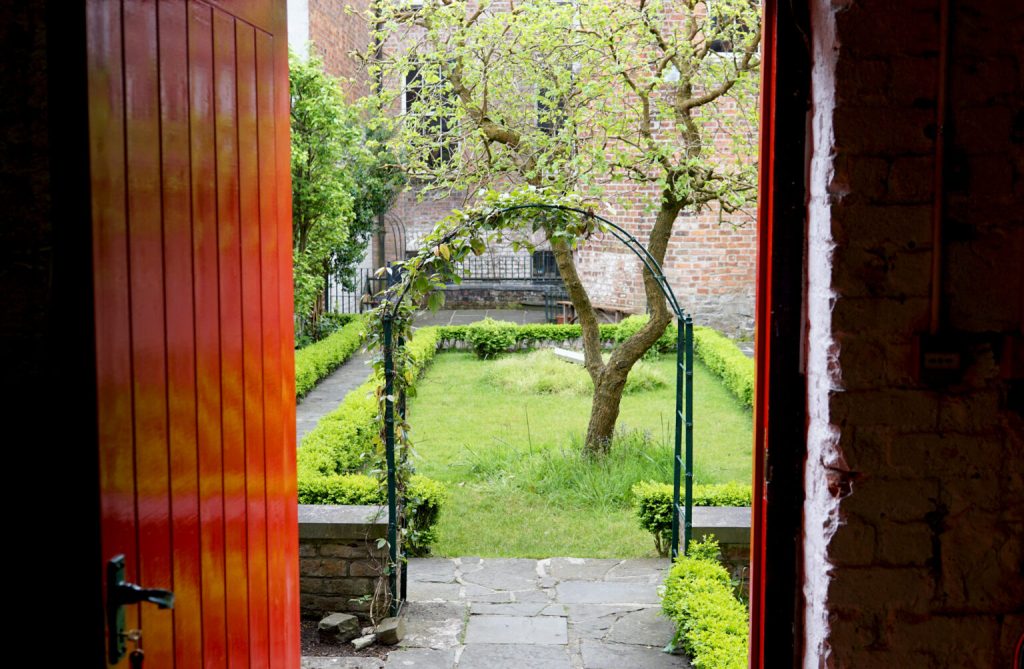
That’s what I’d like to explore in today’s blog. The Coach House here at The People’s Museum of Limerick, No.2 Pery Square is one of the last remaining in Limerick city that hasn’t been converted into a merely commercial endeavour. Thankfully there are such things as cultural taste and preservation in this world!
The stone work of this space is completely original from 1838. Its eye-catching red door and Georgian walled garden greet you as you enter, to find a surprisingly large space inside of its modestly quaint exterior. The space accommodates up to 60 people with comfortable seating available from the museum and even more standing.